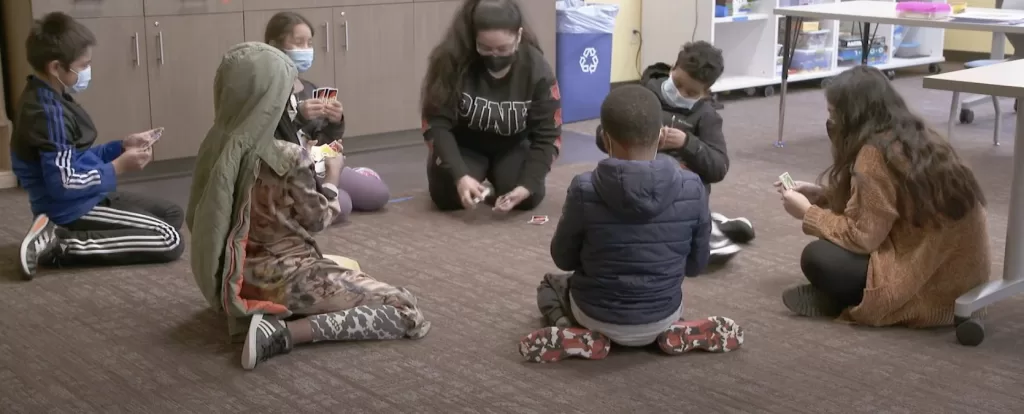
Editor’s Note: This story is about the Montana government refusing to accept government funding that would have helped hungry children. Food is a human right. No one anywhere should go without it.
I cannot ask the question any more plainly than this: If the government cannot be troubled to help feed hungry children, then what, exactly, is the government’s job?
Ironically, I cannot think of a group that the Republican Party, which controls the executive and legislative branches in a supermajority, loves to talk about more than vulnerable children.
During this previous legislature, Republicans fretted over children in schools – from what they read in libraries to arming teachers. Then, they fretted over children at the cellular level – when they’re only a cluster of cells so small they’d need a microscope to see them inside the womb. Children need so much protection, according to Montana Republicans, that even drag queens cannot be seen anywhere in public for fear that … well, I am not sure I even know what to be afraid of because drag queens don’t threaten me or my three children.
Last week, the State of Montana told the media it was not going to take $10 million in funding for summer food programs that would have helped feed hungry children across the state, all because the administrative burdens (read: paperwork) were just too much for the state. Meanwhile, food bank programs report either record or near-record demand as inflation has waged a multi-fronted attack on the financial resources of Montana families.
Realize — for a moment — that the same department that has been charged with deciding whether to accept the food funding, the Montana Department of Public Health and Human Services, is also the same department that is forcing those on Medicaid to prove they belong on the program whenever the department feels like asking (read: paperwork).
Let’s unpack that a bit.
Montana used to be one of two states that allowed continuous eligibility for those who qualify for Medicaid. This meant that once a person was eligible for the federally-backed public insurance program, the person would stay on Medicaid for a year, at which point they’d resubmit information to make sure they still met the eligibility requirements.
Opponents of continuous eligibility, which included most Republicans, argued that some Montanans may not meet the Medicaid criteria for the full year if they, for example, get a job that offers insurance. Furthermore, lawmakers were concerned that if Medicaid recipients stayed on the program even if their life circumstances changed, they were essentially stealing from the government. Therefore, the state’s DPHHS should be in a state of constant redetermination (read: … yep, paperwork).
Meanwhile, supporters of continuous eligibility argued that the “churn” of paperwork and people losing and gaining health insurance coverage would lead to more uncompensated care in healthcare settings, and worse health outcomes because folks may not know whether they had stable insurance or not. Others argued the added administrative burden of constantly checking paperwork would offset any savings. And yet still others argued that constant paperwork mandated by the state was nothing more than an effort to overwhelm and frustrate already needy residents in an effort to make them either beg for healthcare, or simply quit trying.
In other words, the penalty for being poor or disabled is a never-ending exercise in paperwork and uncertainty in insurance.
That’s why the state’s claim that it cannot accept millions to help feed children because of paperwork seems so very insulting. The state has no problem with accepting significantly more paperwork indefinitely because it’s done in the service of eliminating people from social welfare programs, but it cannot be troubled to help those in need onto programs.
If the state really cared so much about getting people off programs that helped with food or even insurance, they’d cut down on paperwork so that residents could do something other than filling out forms and gathering documentation.
This talk of paperwork, regulations and administrative burden (won’t somebody please think of the government workers?!?) is really a distraction in itself. Paperwork is a function of government and endemic to all systems, public and private. No one should accept it as an excuse, because everyone has to do it.
Instead, the reality is that no matter your political persuasion or the menu of responsibilities you believe the government should or should not provide, if our leaders cannot be troubled to grab federal funding designed to feed hungry children, then it’s not just the nameless, faceless government that has failed.
Montana, we’ve failed.
This story is being republished from the Daily Montanan https://dailymontanan.com/ Food is a human right is under Creative Commons license CC BY-NC-ND 4.0.
Darrell Ehrlick is the editor-in-chief of the Daily Montanan, after leading his native state’s largest paper, The Billings Gazette. He is an award-winning journalist, author, historian and teacher, whose career has taken him to North Dakota, Minnesota, Wisconsin, Utah, and Wyoming.
